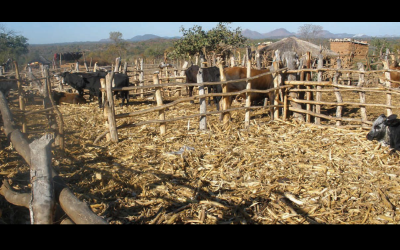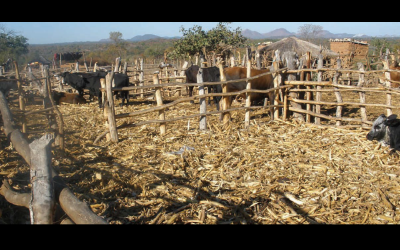 Food and Agriculture Organisation (FAO) has hosted on it’s Family Farming Knowledge Platform profiles of successful agroecology, carried out by members of La Via Campesina(LVC). This joint effort comes as part of the collaboration between FAO and LVC to promote agroecology. Featured below is the profile of Shashe Agroecology school in Zimbabwe, run and managed by peasant families of ZIMSOFF, an LVC member.
Food and Agriculture Organisation (FAO) has hosted on it’s Family Farming Knowledge Platform profiles of successful agroecology, carried out by members of La Via Campesina(LVC). This joint effort comes as part of the collaboration between FAO and LVC to promote agroecology. Featured below is the profile of Shashe Agroecology school in Zimbabwe, run and managed by peasant families of ZIMSOFF, an LVC member.
The experience of the Shashe community in Masvingo Province, Zimbabwe, is a microcosm of the broader vision of La Via Campesina (LVC). Shashe is a community of peasant farmers who gained their land first through a land occupation, and were then benefitted by the Fast Track Land Reform Program implemented by the Government of Zimbabwe in 2000. The land that they now farm was formally the landholdings of absentee cattle ranchers, and today this land produces far more food than ever before, food produced largely through ecological farming practices.
The peasant families in Shashe are members of the Zimbabwe Small Organic Farmers Forum (ZIMSOFF), which represents peasant families practicing organic, traditional and agroecological agriculture in Zimbabwe. ZIMSOFF has some 19,000 smallholder farmers organized in four large clusters. These clusters are made up of 64 local smallholder farmer organizations (SFOs), which nurture dynamic alliances. This profile focuses on the Shashe SFO, in the central cluster, and where the peasant Agroecology School of Zimsoff and La Via Campesina is located.The Shashe Agroecology School is part of the La Via Campesina’s network of over 40 Agroecology schools around the world, and promotes the exchange of experiences through horizontal learning, to disseminate agroecological and sustainable peasant agriculture practices.

